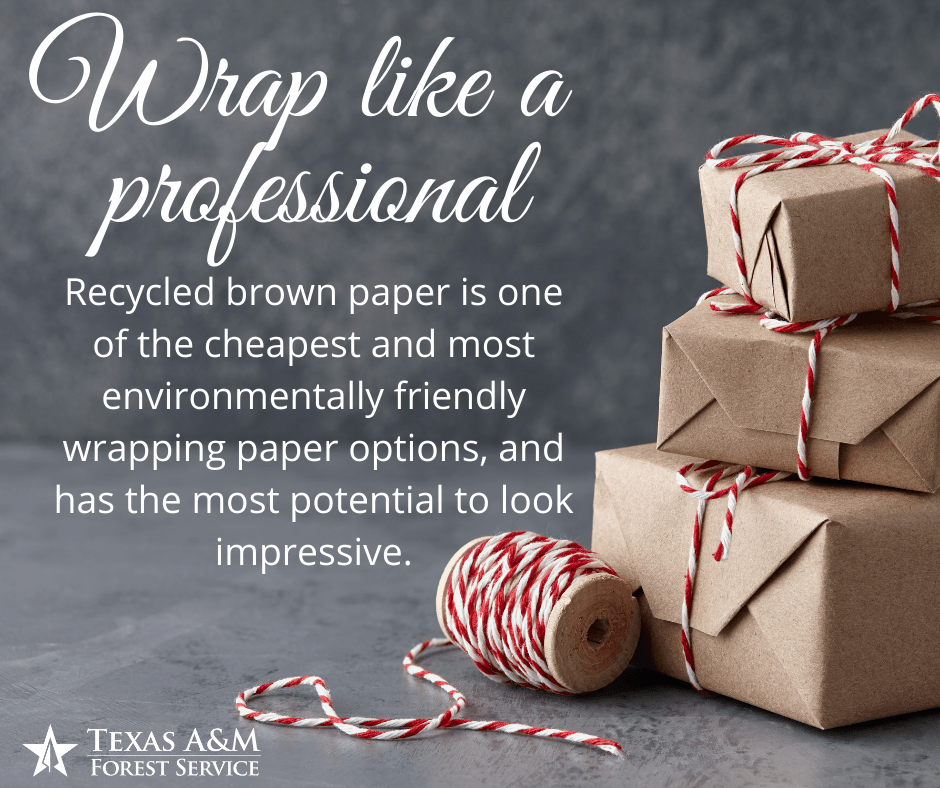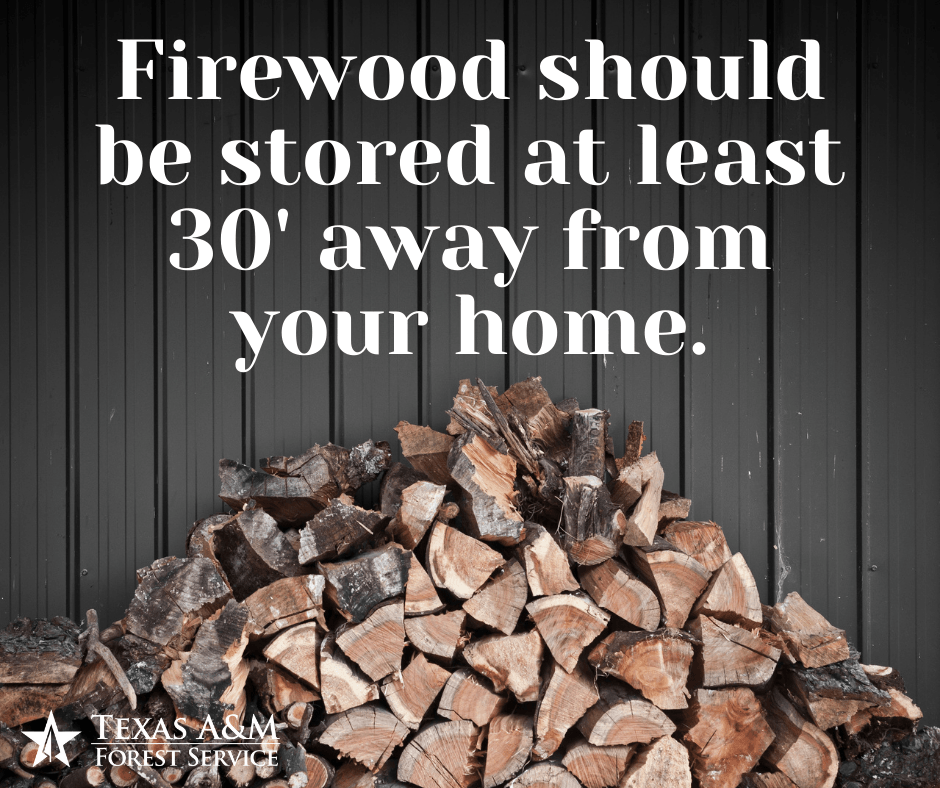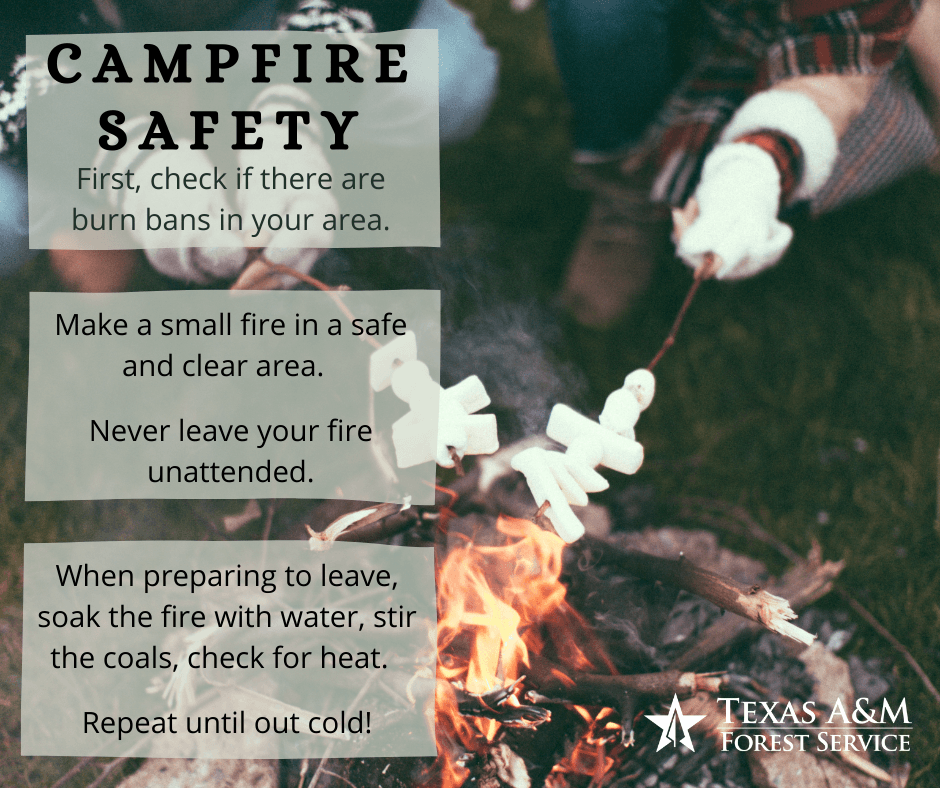1. Wrapping paper and tree recycling
The danger doesn’t end just because the holidays are over. In Texas, careless burning of debris causes the largest number of human-caused wildfires. Unsafe burning of wrapping paper, gift boxes and Christmas trees after the holidays could spark an outdoor fire near you.
There are several alternatives for safe disposal. For Christmas trees, you can chip the tree and use the material as mulch in landscaping beds, cut the trunk of the tree into small pieces to use as pathway edging, or compost your tree. Composting is also a great way to dispose of tissue paper. Remove tape, ribbons and bows, and recycle the wrapping paper or save it to use again. Repurpose other items such as newspapers or pillowcases to wrap presents.
Pay attention to county burn bans and avoid all outdoor burning until conditions improve. Burn ban information can be found by contacting local fire departments or by visiting this link.
2. Firewood safety
Another fire hazard during the holidays is caused by stacking firewood too close to buildings. Firewood is often cured, or dried, so it is easier to light in a fireplace. This drying process does not just make it easier to start a fire in the chimney; it makes it easier to light anywhere. When firewood is stacked too close to a home, it can lead to a wildfire right up to the structure. Keep firewood stacked at least 30 feet away from all structures.
3. Fireworks safety
When using fireworks during the holidays, don’t let your fun turn into flames. Check for local restrictions on fireworks and burn bans before use. Fireworks should be used outdoors on flat, smooth surfaces away from dry grass and flammable materials, and you should always have a water source nearby in case a fire ignites while using fireworks.
4. Practice fire safety while enjoying the outdoors
Campfires can be a great source of warmth and way of cooking, but be sure to keep these safety tips in mind. Locate a safe spot for your campfire, away from anything flammable and far from overhead hazards. Pile up rocks around your fire to help keep the wind out and fire embers in. When you are done with your campfire, fully extinguish it. Drown, stir and feel the area for heat. Hold your hand just above the wet ashes–if you feel any residual heat, continue to add water and stir. Remember, if it’s too hot to touch, it’s too hot to leave.
When hunting, be aware of any action that could cause a wildfire. Be cautious of your vehicles and where you drive. Hot exhaust systems could ignite dry grass and only park in designated areas or in areas free of anything that can catch fire. Your ammunition type matters when hunting too. Steel core and full metal jacket ammunition have the highest potential to start wildfires.
So, as you’re outdoors enjoying a campfire, shooting fireworks or disposing of your Christmas trash be sure to do your part this holiday season, and don’t let a wildfire start.
For more resources, visit the Wildfire Education & Prevention Facebook page.



